This article is part of Carrier Management’s series on the Future of Insurance.
 Kathleen Reardon, CEO, Hamilton Re
Kathleen Reardon, CEO, Hamilton ReQ: What major changes do you see on the horizon for the property/casualty insurance industry in the next 10 years? What will insurance companies, insurance leaders, the industry and its workforce look like in the next decade? What risks will they insure?
Reardon (Hamilton Re): It’s now a truism that the future of insurance will be shaped by the digital revolution. According to the World Economic Forum, the fourth industrial age will see a transformation unlike anything humankind has experienced before.
In 2013, experts reported that 90 percent of the world’s data had been created in the prior two years. By extension, more information has been created in the last two years than in all recorded history. According to some projections [most likely based on Futurist Ray Kurzweil’s Law of Accelerating Returns], by 2020, technological advancement will occur every 30 seconds…
Consider those remarkable statistics in the context of their impact on the assessment of emerging risks like cyber for which there are no historical data. Also consider the world’s shifting demographics. Over 50 percent of the global population is under the age of 30. This diverse, digital generation will increasingly expect quick, easy, technology-enabled access to products and service.
The implications for the industry’s workforce are profound. In the face of a world dominated by the digital experience, what role does the broker or agent play? What kind of trusted adviser must you be when product development is being reinvented in real time?
Similarly, what role does the underwriter play when algorithms can analyze data and select and price risk at the speed of light?
However, far from representing a doomsday scenario, the fourth industrial age will spur true innovation, increased efficiency, relevant products and streamlined distribution—the hallmarks of a truly client-centric industry. In that regard, the future of insurance is full of promise.
Read more Future Insights by person
 Mike Albert, Co-Founder, Ask Kodiak
Mike Albert, Co-Founder, Ask Kodiak Tim Attia, CEO and Co-Founder, Slice Labs, Inc.
Tim Attia, CEO and Co-Founder, Slice Labs, Inc. Arun Balakrishnan, CEO, Xceedance
Arun Balakrishnan, CEO, Xceedance Ilya Bodner, CEO, Bold Penguin
Ilya Bodner, CEO, Bold Penguin Bobby Bowden, Executive Vice President, Chief Distribution and Marketing Officer, Allied World
Bobby Bowden, Executive Vice President, Chief Distribution and Marketing Officer, Allied World Andy Breen, Senior Vice President, Digital, Argo Group
Andy Breen, Senior Vice President, Digital, Argo Group Adam Cassady, CEO, Tyche Risk
Adam Cassady, CEO, Tyche Risk Chris Cheatham, CEO, RiskGenius
Chris Cheatham, CEO, RiskGenius Trent Cooksley, Head of Open Innovation, Markel Corporation
Trent Cooksley, Head of Open Innovation, Markel Corporation Mike Foley, CEO, Zurich North America
Mike Foley, CEO, Zurich North America Guy Goldstein, Co-Founder and CEO, Next Insurance
Guy Goldstein, Co-Founder and CEO, Next Insurance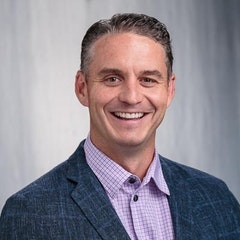 Mike Greene, CEO & Co-Founder, Hi Marley
Mike Greene, CEO & Co-Founder, Hi Marley Brian Hemesath, Managing Director, Global Insurance Accelerator
Brian Hemesath, Managing Director, Global Insurance Accelerator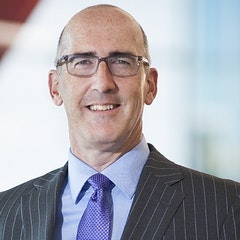 Russell Johnston, CEO, QBE North America
Russell Johnston, CEO, QBE North America Dr. Henna Karna, Managing Director and Chief Data Officer, XL Catlin
Dr. Henna Karna, Managing Director and Chief Data Officer, XL Catlin Tony Kuczinski, President and CEO of Munich Re, US
Tony Kuczinski, President and CEO of Munich Re, US Rashmi Melgiri, Co-Founder, CoverWallet
Rashmi Melgiri, Co-Founder, CoverWallet David W. Miles, Co-Founder and Managing Partner, ManchesterStory Group
David W. Miles, Co-Founder and Managing Partner, ManchesterStory Group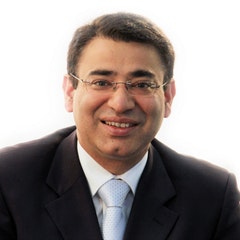 Pranav Pasricha, CEO, Intellect SEEC
Pranav Pasricha, CEO, Intellect SEEC Mike Pritula, President, RMS
Mike Pritula, President, RMS Kathleen Reardon, CEO, Hamilton Re
Kathleen Reardon, CEO, Hamilton Re Jeff Richardson, Senior Vice President, OneBeacon Insurance Group
Jeff Richardson, Senior Vice President, OneBeacon Insurance Group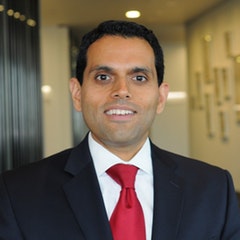 Vikram Sidhu, Partner, Clyde & Co
Vikram Sidhu, Partner, Clyde & Co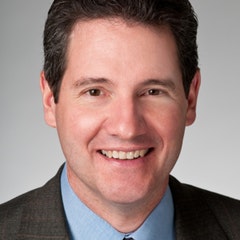 Christopher Swift, CEO, The Hartford
Christopher Swift, CEO, The Hartford Rebecca Wheeling Purcell, Schedule It
Rebecca Wheeling Purcell, Schedule It Keith Wolfe, President US P/C—Regional and National, Swiss Re
Keith Wolfe, President US P/C—Regional and National, Swiss Re


Get the responses of all 26 leaders neatly packaged in single PDF download. More than 43 pages of content.





















 What Industry Executives Are Saying About Loss Reserves, Social Inflation
What Industry Executives Are Saying About Loss Reserves, Social Inflation  Study: U.S. Companies Facing Class Actions at Highest Level in 13 Years
Study: U.S. Companies Facing Class Actions at Highest Level in 13 Years  Viewpoint: Risks for D&O Insurers Exploring the New Frontier of Gen AI
Viewpoint: Risks for D&O Insurers Exploring the New Frontier of Gen AI  That Insurance Talent Crisis? It’s a Global Knowledge Opportunity
That Insurance Talent Crisis? It’s a Global Knowledge Opportunity 






